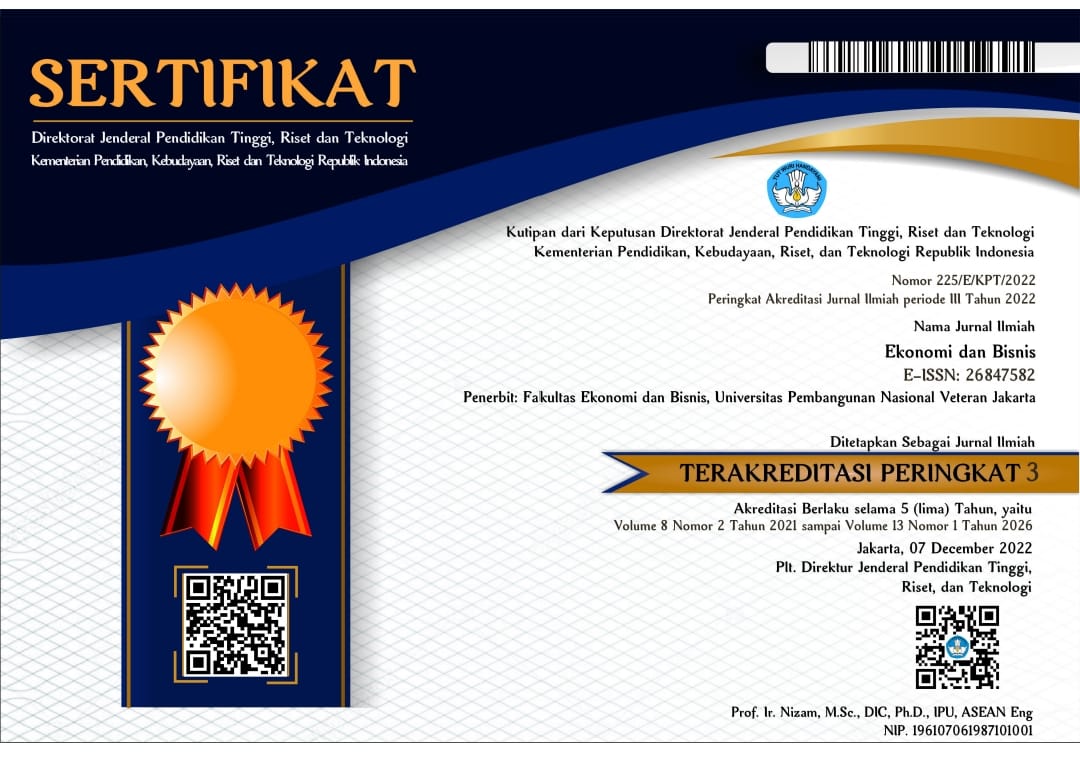TEKNOLOGI VIRTUAL REALITY MENDUKUNG PROMOSI PERJALANAN INSENTIF DI TRAVELAB POLITEKNIK NEGERI BANDUNG
DOI:
https://doi.org/10.35590/jeb.v4i1.733Kata Kunci:
Incentive Tour Package, Marketing Media, TraveLab, Virtual Reality TechnologyAbstrak
Technology is continuing to improve its quality for the users convenience. Virtual Reality (VR) is a technology that allows users who are in the simulation room will feel like in real situations. VR now entering the realm of tourism as media promotion. It uses become important for a travel agent because takes promotion for tourism products and services. One of the travel agents’ products is variety of tour packages, such as travel incentive that focus on business and leisure in one package. TraveLab as a Bandung State Polytechnic travel agent often serve the incentive travel package’ as the student request to visit industries combine with destinations.
Selection of VR as a promotional media at TraveLab known as a new media that attracts consumers to get information about tour package in the form of video watch. Along with the student needs and interest to new technology, VR is one of the recent technology that adopt by TraveLab to promote their incentive tour package to its specific segment, that are student of Bandung State Polytechnic. The enhancement of VR as promotional media, need more selection of videos. This project emphasis on the development of varies video of incentive travel package relate to specific student segmentation. The video shoot have been done by 360 degree camera with the purposes of incentive travel pattern and resulting of three new incentive tour packages.
Unduhan
Diterbitkan
Cara Mengutip
Terbitan
Bagian
Lisensi
Kebijakan yang diajukan untuk jurnal yang menawarkan akses terbuka
Syarat yang harus dipenuhi oleh Penulis sebagai berikut:
- Penulis menyimpan hak cipta dan memberikan jurnal hak penerbitan pertama naskah secara simultan dengan lisensi di bawah Creative Commons Attribution License yang mengizinkan orang lain untuk berbagi pekerjaan dengan sebuah pernyataan kepenulisan pekerjaan dan penerbitan awal di jurnal ini.
- Penulis bisa memasukkan ke dalam penyusunan kontraktual tambahan terpisah untuk distribusi non ekslusif versi kaya terbitan jurnal (contoh: mempostingnya ke repositori institusional atau menerbitkannya dalam sebuah buku), dengan pengakuan penerbitan awalnya di jurnal ini.
- Penulis diizinkan dan didorong untuk mem-posting karya mereka online (contoh: di repositori institusional atau di website mereka) sebelum dan selama proses penyerahan, karena dapat mengarahkan ke pertukaran produktif, seperti halnya sitiran yang lebih awal dan lebih hebat dari karya yang diterbitkan. (Lihat Efek Akses Terbuka).

_1.png)


